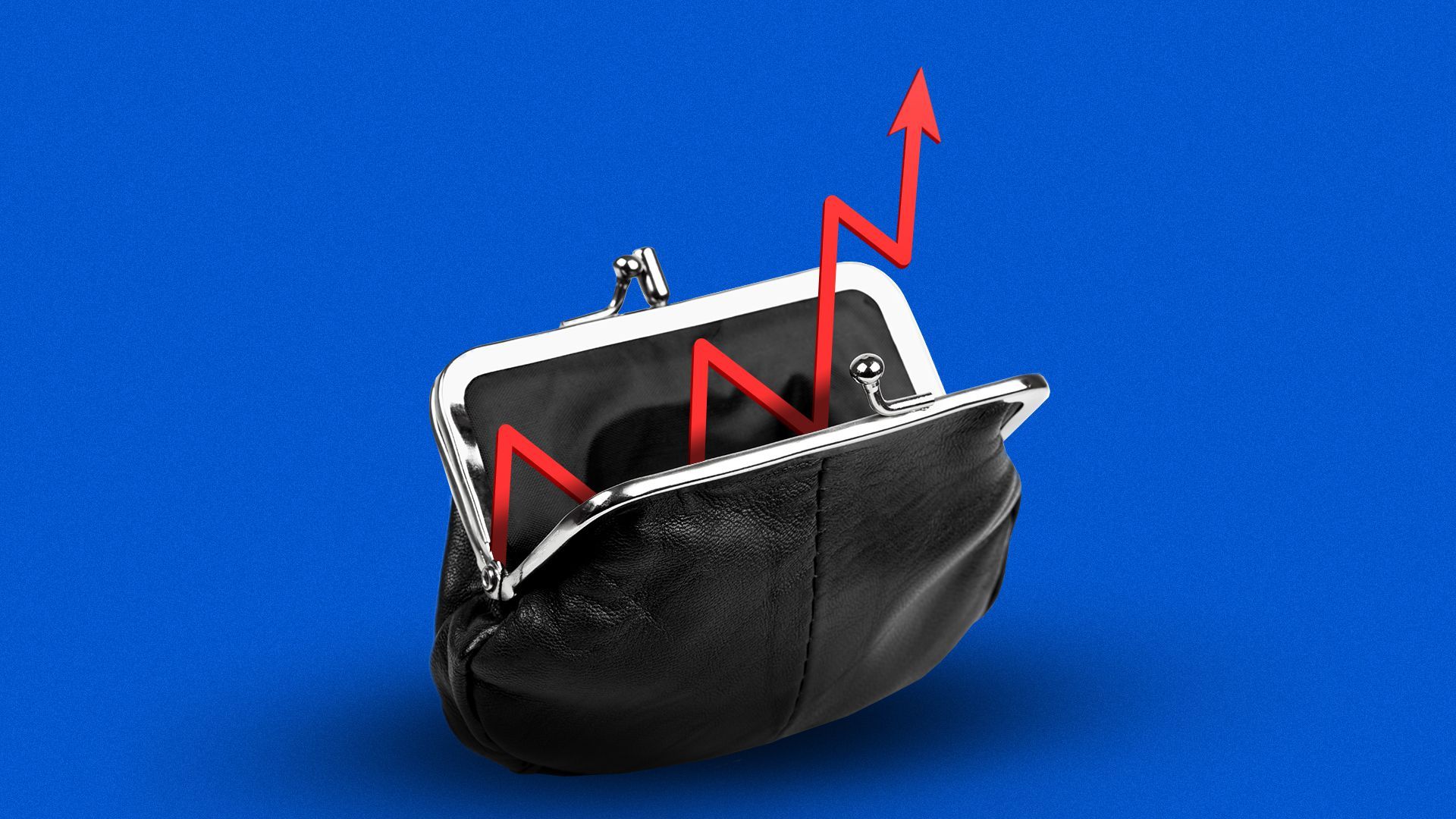Shopping with a private currency
Add Axios as your preferred source to
see more of our stories on Google.

Illustration: Annelise Capossela/Axios
Something rare is happening with regularity in the digital media world: all-stock acquisitions by private companies.
Why it matters: It's hard to negotiate a deal when you're paying in stock with limited liquidity and valuation uncertainty.
- In certain circumstances, however, such acquisitions can look attractive to both sides.
Driving the news: Vox Media is buying Group Nine Media in an all-stock deal. Both sides are themselves products of the trend: Vox previously bought New York Media, while Group Nine previously bought PopSugar, both in all-stock deals.
- Rival digital-media company BuzzFeed bought HuffPost in the same way last year.
The big picture: When private companies get acquired, they overwhelmingly get bought for cash, according to data from SRS Acquiom. Only between 2% and 3% of such deals are done purely in stock — and in most of those cases the buyer is a public company, so the valuation is unambiguous.
Between the lines: To be able to get the attention of advertisers spoiled by the Facebook-Google duopoly, digital media companies need scale. That's both a carrot and a stick: Becoming part of a significantly larger operation should increase a company's valuation multiple, while failing to do so can be an existential risk.
- When the target company is losing money, as both HuffPost and New York Media were doing, the urgency to sell becomes even greater.
How it works: All-stock deals can sometimes have valuation figures attached to them, but ultimately those numbers are meaningless. In all-stock deals there's no haggling over absolute valuations, just relative valuations. Which is often easier.
- These mergers aren't an exit for the target company's shareholders. Instead, they're a way to stay alive and hitch your wagon to a star you helped create.
Be smart: For much of the past year, conventional wisdom held that the way for digital-media companies to grow was going public via a SPAC. That would give hungry would-be acquirers hundreds of millions of dollars of cash, as well as as the ability to effectively print money by issuing new shares in takeover transactions.
- BuzzFeed shows the danger of SPACs, however. The promised cash never materialized, as SPAC investors redeemed their investments before BuzzFeed was acquired.
- BuzzFeed's sinking public share price also means it can't spin fanciful stories about how much a combined company might be worth.
What they're saying: "Doing a stock deal like this signifies that we can be the acquirer of choice," Group Nine CEO Ben Lerer told Axios' Sara Fischer. "We have a currency that's going to be valuable."
- In the current digital media climate, only by remaining private can Lerer keep that dream alive. Then, if and when the weather changes, Lerer still has a SPAC he can use to take Vox Media public.
The bottom line: It's easy to see why companies would like a roadmap to dollars when they're being bought. But a deal denominated in private stock can still be more attractive than remaining independent.
